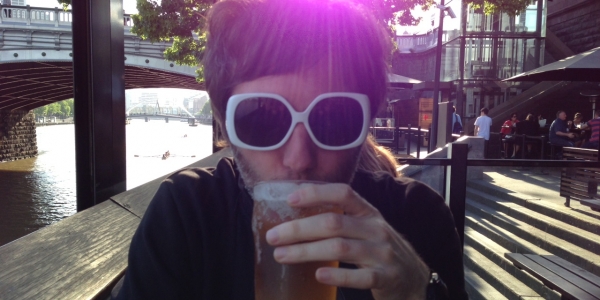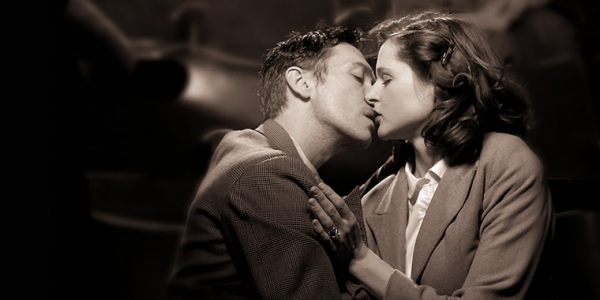While releasing two albums simultaneously is a very Pink Floyd thing to do, Rogers had modest reasons for doing so. The process of recording fifth album An Undefined Number was fraught with tension, with Rogers and producer John Palmer fighting to realise their sharply divergent visions of the album. Kicking The Tracers ended up pouring out of Rogers when he fled to Japan after An Undefined Number’s eventual completion, a sort of therapeutic purge. “Making the first one was such an emotional and musical challenge that I ended up with a lot pent up,” he says. “I wanted to write some songs, just so I could get back that love of music. Making an album out of those songs didn’t really cross my mind until later.”
That explains the creative side of it, but why the double release? “I suppose making a single album out of the best songs would have been clever from a career point of view,” Rogers admits, “but it documents a time in my life, and it’s important for me to preserve that. And besides,” he adds, “my friends all thought it was a terrible idea, which made me want to do it more”.
Though the Undefined Number experience sounds traumatic, Rogers is philosophical, and content to wear his share of the blame. “We’re very close friends, but we’re the sort of guys that bottle things up. I’m used to self-producing, and so having to justify my decisions made me very defensive. The thing is,” he says with a laugh, “John was doing exactly what I asked him to do.”
Perhaps unsurprisingly, there is a distinct difference between the two. Palmer’s influence has pushed An Undefined Number into nuggety power pop territory, while Kicking The Tracers is more introspective, with a varied palette. Despite their seemingly complementary qualities, Rogers thinks of them as distinct entities. “I think musicians usually overestimate their ability to vary their sound,” he says. They’re different, but it’s not Use Your Illusion or Melon Collie and the Infinite Sadness, “There’s no overarching narrative there.”
Despite the differences between the two albums, characteristic Rogers features abound in both. One of these is the lyrics, an insightful, sympathetic catalogue of faded dreams and daily compromises, all laced with a dry humour. “I try to keep things rooted in suburban life,” Rogers explains, “And the sadness I’m talking about isn’t the soul-crushing variety. It’s just about getting a little older, friends getting married. It’s a comforting sadness. I’m not walking around wearing black eyeliner, it’s just something that creeps at the fringes.”
The two albums will be the last that the world hears of D. Rogers. Rogers intends to retire his own moniker, before throwing himself back into band life with The Shops. The move was borne of a desire to collaborate, despite the trauma of his last collaborative effort. “I just really want to start a band, and embrace the challenge of collaboration. The social aspect of music is almost my favourite bit about it.” If it sounds like Rogers has a master plan, he doesn’t – you get the sense that that’s the point, though. “There are no songs. All we’ve got is a name and an aesthetic…I’m looking forward to it!”
Before The Shops, though, there’s still the small matter of a double album launch, and Rogers is going to mark the occasion with novelty merchandise and a sorta reunion. “It’s a digital release – so we’ve selling a limited edition D. Rogers lego set. Also, coincidentally, two ex-Klinger members are playing in The Dukes of Batavia, and one in The Glorious North, and then me, so it’ll be a reunion of sorts.”
BY EDWARD SHARP-PAUL

